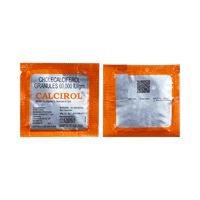Cetzet D 10mg/5mg Tablet

Rs.19.40for 1 strip(s) (10 tablets each)
food interaction for Cetzet D
alcohol interaction for Cetzet D
pregnancy interaction for Cetzet D
lactation interaction for Cetzet D
food
alcohol
pregnancy
lactation
Cetzet D 10mg/5mg Tablet may be taken with or without food, but it is better to take it at a fixed time.
None
None
CAUTION
Caution is advised when consuming alcohol with Cetzet D 10mg/5mg Tablet. Please consult your doctor.
CAUTION
Cetzet D 10mg/5mg Tablet may be unsafe to use during pregnancy. Although there are limited studies in humans, animal studies have shown harmful effects on the developing baby. Your doctor will weigh the benefits and any potential risks before prescribing it to you. Please consult your doctor.
CONSULT YOUR DOCTOR
Cetzet D 10mg/5mg Tablet is probably unsafe to use during breastfeeding. Limited human data suggests that the drug may pass into the breastmilk and harm the baby.
CONSULT YOUR DOCTOR
SALT INFORMATION FOR Cetzet D
Cetirizine(10mg)
Uses
Cetirizine is used in the treatment of allergic conditions.
How it works
Cetirizine is an antihistaminic medication. It treats allergy symptoms such as itching, swelling, and rashes by blocking the effects of a chemical messenger (histamine) in the body.
Common side effects
Headache, Constipation, Sleepiness, Fatigue, Vomiting, Dryness in mouth, Diarrhea, Agitation, Paresthesia (tingling or pricking sensation), Itching, Rash, Weakness, General discomfort, Hypersensitivity, Increased appetite, Vertigo, Tachycardia, Convulsion
Phenylephrine(5mg)
Uses
Phenylephrine is used in common cold.
How it works
Phenylephrine is a decongestant. It works by narrowing the small blood vessels which provides temporary relief from inflammation (redness and swelling) and discomfort.
Common side effects
Nausea, Vomiting, Headache, High blood pressure, Arrhythmia (irregular heartbeats), Blurred vision, Breathlessness, Itching, Restlessness, Reflex bradycardia, Excitation, Epigastric pain, Neck pain, Tremors, Hypertensive crisis, Eye pain, Stinging in the eyes, Photophobia, Conjunctival sensitivity, Preterm and low birth weight infants, Fainting, Myocardial infarction, Subarachnoid hemorrhage
SUBSTITUTES FOR Cetzet D
No substitutes foundExpert advice FOR Cetzet D
- Your doctor has prescribed Cetirizine to help relieve allergy symptoms such as itching, swelling, and rashes.
- It is okay to take Cetirizine with most other medications as it has few drug interactions.
- Compared to other similar medications, Cetirizine is less likely to cause sleepiness.
- Stop taking Cetirizine at least three days before taking an allergy test as it can affect the test results.
Frequently asked questions FOR Cetzet D
Cetirizine
Q. Does Cetirizine make you tired and drowsy?
Yes, Cetirizine can make you feel tired, sleepy, and weak.
Q. Is Cetirizine a steroid? What is it used for?
Cetirizine is an anti-allergic medication, not a steroid. It relieves the symptoms of allergy. It is used to relieve runny nose, sneezing and redness, itching, and watering of the eyes caused by hay fever or seasonal allergies. It also relieves similar symptoms caused due to allergies to substances, such as dust mites, animal dander, and mold. It is also used to treat symptoms of hives, including itching and rash.
Q. How long does it take for Cetirizine to work?
You will notice an improvement within an hour of taking Cetirizine. However, it may take a little longer to notice the full benefits.
Phenylephrine
Q. Is it safe to use Phenylephrine?
Yes, Phenylephrine is safe for most of the patients. However, in some patients, it may cause side effects like nausea, vomiting, headache, fatigue, dizziness, dryness in the mouth, sleepiness and allergic reaction. If you experience any persistent problem while taking this medication, inform your doctor as soon as possible.
Q. Can the use of Phenylephrine cause dizziness?
Yes, the use of Phenylephrine can cause dizziness (feeling faint, weak, unsteady or lightheaded) in some patients. If you feel dizzy or lightheaded, it is better to rest for sometime and resume once you feel better. Do not drive or use any machines. Consult your doctor if the side effect persist or worsen.
Q. Can the use of Phenylephrine cause nausea and vomiting?
Yes, the use of Phenylephrine can cause nausea and vomiting. To avoid nausea one can take Phenylephrine with milk, food or with antacids. If vomiting occurs, drink plenty of water or other fluids. Talk to your doctor if vomiting persists. You should let your doctor know if you are unable to drink water and there are signs of dehydration, like dark colored and strong-smelling urine and a low frequency of urination. Avoid taking fatty or fried foods along with this medication. Do not take any other medicine without consulting your doctor.






















